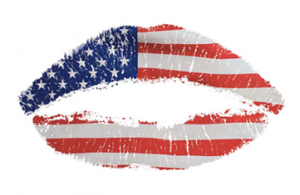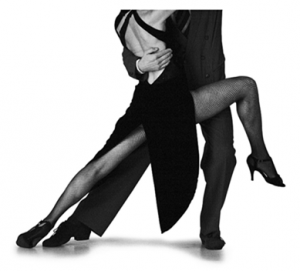Men. Women. Our propensity for expressing ourselves verbally and emotionally. How much is determined by cultural influences, and specifically, by country of origin?
 How could we not be shaped by what we see and hear as we grow up, not to mention what is rewarded and what is discouraged?
How could we not be shaped by what we see and hear as we grow up, not to mention what is rewarded and what is discouraged?
It started with a question I was passing along on Twitter: Do women lose respect when men are emotional?
I am intrigued by one of Mark Greene’s columns on Good Men Project, and its particular twist on gender roles. But I quickly found myself in a country-specific conversation, which set me to examining my own sweeping statements.
Naturally, that led me to reflect on my relationships.
Who Doesn’t Love Twitter for 21st Century Glasnost?
In a delightful dialog on Twitter following my question, the conversation continued.
From Helaine Becker:
… adore when men show emotion. Well, I would. Husband is Canadian- no emotion ever, or dancing either.
To which I replied:
Now, now. Are we generalizing by country of origin? (I admit to doing so when it comes to #French #men.)
May I add that for my part, I was engaging with a twinkle in my eye. Based on the continuing conversation, I suspect Helaine was, too.
France: Hot Men, Cool Country
What has suited me most often, given my attitudes, my approach to life, and apparently elements of my physical self and personality – eh oui – French men. Not always, mind you, but most often.
France, to me, is a very cool country – with very hot men! While I’m certainly aware of the imperfections (no such thing as a perfect anything), what is more important is that I’m compatible with aspects of French culture on a variety of levels. Who I am – as a woman and a person – feels more à l’aise with a French man, there or elsewhere.
My ideal? In theory, a hybrid – one of French origin or experience, who has lived a multiplicity of cultural styles – including American – and is open-minded to a mix that suits him, as a mix suits me.
But any relationship is ultimately about individuals. What we’ve learned, what we’ve shed, the selves we are at a given moment and that we bring to the other – and to the couple.
Best Country for Romantic Men? Best Country for Husbands?
I never considered – explicitly – which countries offered the most “romantic” men, much less the best set of qualities that might make for a good husband.
 The fact is, I never expressly considered any of these things.
The fact is, I never expressly considered any of these things.
Like most (young) women, I assumed life would lead me into amorous adventures, though I never targeted marriage as many do. Life would unfold – and did; of course, I had a hand and the rest was, well… this, that, and serendipity.
But I’m asking myself now about the role of culture – and country – in terms of who we choose and who chooses us. In addition to gender stereotypes we continue to harbor, are we subconsciously drawn to people based on country of origin? Is that based on assumptions and mythology – for better or worse?
I see it in Helaine’s response (offered in humor); I see it in my own preferences and commentary concerning the French, which is nonetheless “backed” by decades of personal experience. It’s only reasonable that cultural differences abound, making music (or disharmony) in the bedroom, just as they do when we’re sitting across from each other at the kitchen table.
Some cultural elements will be to our personal liking. Others will not. Some will be about belief systems; deeply ingrained, value-based, and including roles to do with gender.
Can Culture Make or Break a Marriage?
Looking back at certain of my ex-husband’s behaviors, his European origin (no, not French), and many years spent traveling back and forth to his native country, I recognize traits that are common to his culture.
Should I have paid more attention? They were – and are – in direct conflict with my beliefs.
I couldn’t have imagined how this might play into our marriage, though I remain convinced that our major differences – fundamentally – were of personal, individual values.
Still – do we carelessly make remarks about Latin men for example, and let them land where they will, and perpetuate stereotypes? Do we expect the Dutch to be cool, the Italians to be hot, the French to be seductive, the Aussies to charm like Hugh Jackman or Crocodile Dundee?
And our UK friends? Must we find a facsimile of David Beckham? Jude Law? John Hannah? John Cleese?
 And my wise and wondrous Canadian cohorts?
And my wise and wondrous Canadian cohorts?
Can’t they dance?
In the Interest of Bettering International Relations
On that note I will only admit to a lovely friendship with one fine Canadian gentleman when I was in my twenties. Smart, funny, expressive – and the man could mambo!
- Care to admit to any country-specific attributes of your personality or behavior that fit the stereotypical bill?
- Care to dispel some less than applicable assumptions?
- As for cultural differences in relationships, couldn’t the same be true for East Coast-West Coast, or North-South? New York, and everywhere else? Texas, and everywhere else?
- Your recommendations for country pleasures? Romantic men, or “good” men? For that matter, your assessment of the women?
You May Also Enjoy

I think we all subconsciously harbor the stereotypes in our minds. Sort of makes one wonder why there are these regional/cultural stereotypes to begin with, doesn’t it? Maybe they’re true on some level, but certainly not in all cases for all peoples.
I think that stereotypes have some basis, sometimes, but one needs to be careful as they are not always true or based in fact, and each individual is different based on how they were raised, where they lived, who they associated with, and what culture(s) they adopted.
For example, having lived and traveled extensively in Canada and the US, I can advise Canadian men dance about as much and the same as American men. That said certain parts of the US and Canada are more “vivacious” than others. For example Miles City, Montana and New Orleans, La definitely seem to be at opposite ends of the dancing spectrum, as are St John, Newfoundland, and Moosejaw, Saskatchewan.
Even in France BLW, there are such regional differences and I would venture to guess you have more of an affinity to Parisians and perhaps not Marseillaise. That said I think there are cultural differences (often subtle) from country to country, and region to region even in the US (say Houston, to NYC, to LA, to Fargo).
I think one’s taste may have an affinity to one or more different regions. If you understand the culture and speak the language I think you have a greater affinity to certain regions.
Finally I think the desirable attributes of a culture/region can often cause one to overlook the negative ones, at least in the short term. As a person who has lived and experienced many cultures I can advise I am a product of all, for good and bad.
What a thoughtful response, Curtis. Yes – those regional differences are significant. (Actually, I love the South of France – Nice, Aix – and likewise, Normandy. But you’re quite right, I’m most at home in Paris, which is a bit like being at home in NY.)
Aren’t you glad that you’re a product of so many cultures? Don’t you find it to be advantageous in many ways?
Oh, such a fascinating topic. I think about this all the time. I’m in an international marriage, and my husband has told me often that he has no interest in the women in his Asian country. He likes that I’m a fusion of Asian and American (not too much of either). Little did I know when I met him that the men in his country are KNOWN to be horrible husbands – emotionally and physically absent, unromantic, insensitive…or at least that’s the stereotype. Because according to my husband the women are no better. Both the men and women complain about the opposite gender so something’s amiss. I think that the western-side in me allows my husband to feel comfortable enough to be the person he can’t be under the strict social expectations of his culture. There he has to fulfill a role – once he’s a father he is not supposed to look at his wife as a lover anymore, for example. With me and living here in the U.S. he can break free from the beliefs of his culture. He is just nothing like the stereotype. I will often describe him as “westernized” to others but maybe it is not that…it’s just that he’s free.
BLW – Normandy isn`t part of France, or, at least according to the Norman residents of the region. Yet another regional difference. It is advantageous to be changed by and understand many cultures, but at some point no where is home. Hence people who bemoan living one place their whole lives, fail to recognize the benefits of such.
One point I missed is that language also affects one`s outlook and culture, hence that creates less subtle differences. People who speak more than one language understand that when one changes the language they use, their thought process subtley changes as well.
Ha! Curtis, I know some Normans (even in the US) who would be nodding in agreement, and talking about Le Duc and “les trois chats” (pronounced “cas”)… 🙂 And yes, language exerts its influence. I also understand that when you are at home in many places (to some degree), you are no longer at home in any one place.
I think if more women genuinely wanted their men to express their emotions more often, we men simply would. I mean, where’s the downside if your spouse really wants to hear how you feel? We aren’t dumb. But in fact, we get mixed signals and are often told how to feel or how to moderate our feelings (“I can’t believe you feel that way!”; “Your feelings don’t make sense: you are over-reacting again.”; “You’re just tired — go to bed and you’ll feel better in the morning.”) I’m pretty lucky but I hear this from my buddies all the time. Yes, men do talk about this stuff. So when we get this feedback, we just clam up. Of course, this helps no one.
My wife and I tell our boys to tell us how they feel, and we don’t cut them off or correct them, and thus they do. It’s not high-energy physics (or even as hard as plumbing).
Mandelstam